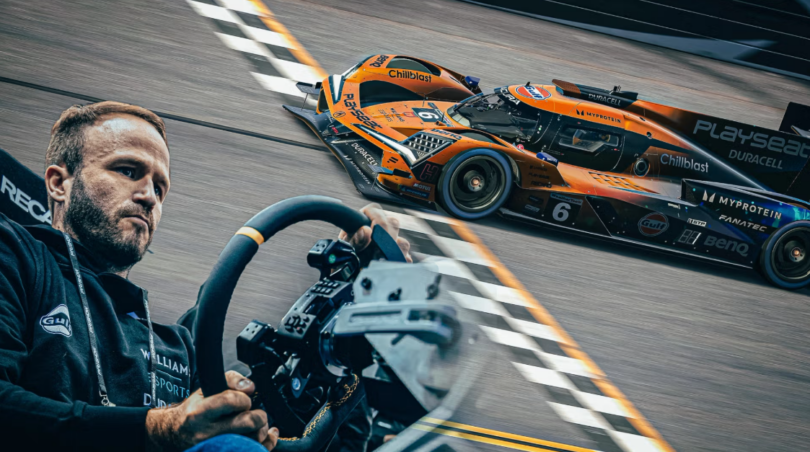Sim racing, the virtual counterpart to real-world motorsport, continues to experience exponential growth, drawing in both professional athletes and casual gamers into its immersive and competitive environment. Combining the precision of simulation software with the thrill of racing, sim racing has evolved into a key segment of esports, providing opportunities for players to hone their skills, compete in global tournaments, and even transition into real-world motorsport careers. Here’s an overview of the latest developments in sim racing as of late 2024.
A Thriving Esports Ecosystem
Sim racing has firmly entrenched itself in the esports world. With major platforms like iRacing, Assetto Corsa, and rFactor 2, the simulation racing scene has transformed into a competitive, high-stakes arena. iRacing, in particular, remains one of the most popular platforms, hosting a variety of competitive leagues and professional events such as the iRacing World Championship Grand Prix Series. These events draw tens of thousands of spectators online and are widely considered to offer the closest experience to real-world racing on a digital platform.
The introduction of AI-driven simulations, alongside real-time strategy, racecraft, and technical skill, makes events like these some of the most demanding and rewarding competitions in the esports industry. Racers must manage tire wear, fuel strategies, and track conditions, mimicking the complexities of actual motorsport. As of 2024, new AI improvements within iRacing are making the competition even more intense by enhancing the behavior of AI opponents, creating more realistic and challenging environments.
In addition to iRacing, Formula 1’s Esports Series continues to gain traction. The F1 Esports Pro Series brings together the best sim racers from around the world to compete for a multi-million-dollar prize pool. F1 drivers like Lando Norris and Charles Leclerc have even dabbled in sim racing as a way to refine their real-world driving skills, while also engaging with fans and testing new strategies in a controlled, virtual environment. The 2024 season of F1 Sim Racing has seen intense competition, with teams like Mercedes-AMG PETRONAS and Red Bull Racing battling it out in front of thousands of fans online.
A Gateway to Real-World Racing
One of the most compelling aspects of sim racing is its ability to serve as a stepping stone into professional motorsports. This connection has grown stronger in recent years, as several professional racing teams and organizations scout talent from virtual circuits. iRacing’s Global Mazda MX-5 Cup, for example, offers Prodigy Passes to top players, granting them a chance to try out for professional racing teams. This crossover between the digital and real worlds highlights sim racing’s role as a genuine training ground for future drivers.
Notable real-world racers have also embraced sim racing as a method of honing their skills. Drivers like Max Verstappen, Fernando Alonso, and Lando Norris have all highlighted the importance of virtual racing in their training regimens. Verstappen, for instance, is known to use sim racing as a way to practice tracks that are difficult to access for on-site testing, while also adapting to changing conditions like weather and track temperatures. This trend has also seen significant investments from major automotive brands, with Mercedes-Benz and Ferrari both establishing dedicated sim racing teams to scout and develop new talent.
Technological Advancements and Innovation
The technology behind sim racing has undergone rapid evolution, with manufacturers continually improving both hardware and software. Racing wheels, pedals, and cockpit setups have become highly advanced, providing a level of immersion that mimics real-life racing. Companies like Fanatec, Thrustmaster, and Logitech have created state-of-the-art steering wheels and pedals that offer force feedback, high precision, and responsive controls, elevating the driving experience to new heights.
The integration of Virtual Reality (VR) has also significantly improved the immersion of sim racing, allowing players to feel as though they are physically seated in a race car. For sim racers looking for a fully immersive experience, VR headsets such as the Oculus Rift or HTC Vive deliver an unparalleled sense of presence, while Triple-Screen setups provide expansive views of the racing environment, adding to the realism of the virtual experience.
In terms of software, platforms like iRacing and Assetto Corsa continually update their simulations to reflect the latest trends in real-world racing, incorporating new cars, tracks, and racing conditions. The advancements in AI systems, such as AI-driven weather systems and dynamic track surfaces, add a layer of unpredictability to races, forcing sim racers to adapt on the fly just as professional drivers must in real-life races. Additionally, software updates now include advanced telemetry tools, which allow players to analyze every aspect of their performance, from cornering speeds to tire management.
The Future of Sim Racing
Looking ahead, sim racing is expected to continue growing at a rapid pace. With new innovations in augmented reality (AR) and haptic feedback technology, sim racing could soon offer even more immersive experiences that bridge the gap between the virtual and real world. The integration of blockchain technology might also lead to new opportunities for sim racers, including digital ownership of in-game assets and potential monetization through NFTs (non-fungible tokens).
Furthermore, as esports continues to evolve, sim racing will likely become more deeply integrated into mainstream sports media. We may see even more coverage of major events, with sim racing tournaments broadcast on mainstream sports networks and integrated into global motorsport championships. Given the increasing popularity of motorsport esports leagues, sim racing will likely continue its expansion, offering opportunities for both competitive and recreational drivers alike.
Conclusion
Sim racing in 2024 stands as a thriving industry that blends the excitement of motorsports with the technological wonders of simulation gaming. Whether you’re a casual gamer or an aspiring professional, the world of sim racing offers something for everyone. From the growth of virtual racing leagues and global championships to the technological advancements in simulation software and hardware, sim racing is undoubtedly shaping the future of both esports and motorsports. With its ability to serve as a proving ground for real-world racing talent and its ever-expanding community, sim racing is poised for even greater growth and innovation in the years to come.







